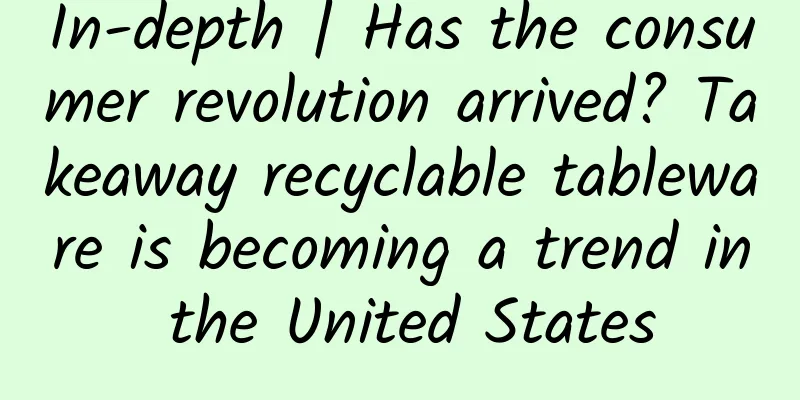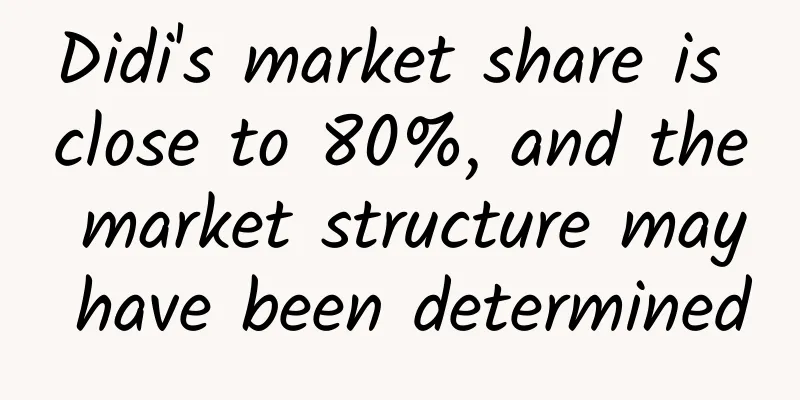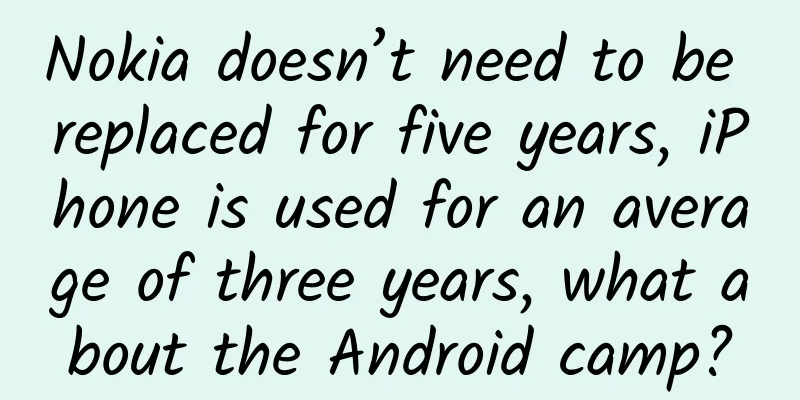In-depth | Has the consumer revolution arrived? Takeaway recyclable tableware is becoming a trend in the United States

|
"Am I the only one who is concerned about the excessive amount of plastic waste sold?" Lauren Sweeney once asked herself before planning to promote recycled tableware. "Is throwing them in the 'recyclables' bin just a psychological comfort? Is there a better solution?" According to a survey by the US Ocean Conservancy, more than 70% of Americans order takeout one to three times a week, which means hundreds of billions of disposable plastic tableware are used and discarded every year. In November 2019, Lauren Sweeney and two other co-founders, Adam Farbiarz and Byron Sorrells, jointly launched the DeliverZero website, a meal ordering platform that uses recycled tableware. People can place takeout orders on the website, and unlike other websites, the takeout food on this website is served in reusable boxes instead of disposable boxes. Initially, the site had only a handful of restaurants in a Brooklyn neighborhood, and the user interface was “terrible,” but the app was quickly launched anyway. As chief marketing officer, Lauren Sweeney and her partners spent three months expanding DeliverZero in Brooklyn. Just as they were about to "enter" Manhattan, the coronavirus hit. In the summer of 2020, they temporarily closed the DeliverZero website to redesign and plan a new round of launches. At that time, New Yorkers were huddled at home, eager to eat different flavors of meals through takeout. More than 130 restaurants across the two boroughs now deliver food in sturdy green polypropylene containers provided by DeliverZero that are returnable, washable and reusable up to 1,000 times. Image | DeliveryZero DeliverZero is one of many startups trying to eliminate food packaging pollution. Sweeney shared his experience, saying that the key to success depends on the scale of the solution and consumer demand for sustainability. “We want to create a network of reusable containers that are easy to collect and recycle to replace single-use plastic packaging,” Sweeney said. Over their lifespan, reusable containers produce lower greenhouse gas emissions than single-use containers and use less energy and water. Olga Kachook, senior manager of the U.S. Sustainable Packaging Alliance, said: "More and more innovative startups are proving that food delivery can also be an industry that does not generate a lot of disposable waste." In Denver, Seattle, San Diego, Portland, Oregon, Minneapolis-St. Paul, Durham, North Carolina, and Oahu, Hawaii, more and more restaurants are choosing to use recycled tableware instead of disposable plastic lunch boxes. Sustainable consumption is gradually gaining momentum in the United States. Even big international brands are experimenting. Burger King will trial reusable soda cups and bulk boxes in New York City and Portland, Oregon, by early 2022. McDonald's already offers reusable coffee cups in some locations in the UK. “We are on the cusp of a circular revolution,” Bridget Croke, managing director of circular economy investment firm Closed Loop Partners, said in a recent report, predicting that emerging models will “build circularity back into our culture and norms.” The operation of using recyclable tableware in takeout orders is basically the same as that of using disposable tableware, except that there are one or two additional steps such as checking the use and return before and after using the recyclable tableware. The containers provided by start-ups to restaurants are usually made of durable, reusable plastics, which are better at keeping warm than disposable plastics. Like books in a library, these recycling boxes are printed with QR codes and electronic codes. Customers can use their mobile phones to scan the QR codes on the boxes to make an appointment to return them when they get their food. In terms of fees, some companies require customers to pay a monthly subscription fee of a few dollars, others charge a small fee per box, and some are free. Most companies charge restaurants a fee for recycling tableware that is comparable to the price of disposable plastic tableware. The return steps are similar: customers return the meal boxes to designated restaurants or smart delivery boxes. If they do not return them within the specified time, customers will be fined or their deposit will be deducted. Recycling tableware delivery platforms like DeliverZero offer the option of direct door-to-door recycling. Customers can return the box at any restaurant that partners with DeliverZero, or return the previously used meal box to the delivery driver when he delivers the next meal to their door. DeliverZero does not charge restaurants or customers for packaging boxes, but instead charges restaurants 5%-20% of sales as a service fee. "The maximum will not exceed 22.5%." Sweeney emphasized. During the epidemic, some food delivery platforms such as Seamless and GrubHub took the opportunity to raise their service fees to 30% of restaurant turnover, sparking public outrage. Eventually, cities including New York and San Francisco introduced regulations to strictly control the upper limit of food delivery platform service fees. Today, DeliverZero is connecting reusable meal boxes as a packaging option to more large food delivery platforms. Consumers can choose to use it at a price of 25 cents per box. Sweeney hopes that more consumers will choose to put takeout food in reusable containers. Maia Tekle and Lindsey Hoell, founders of Dispatch Goods, another recycling tableware supplier, believe that logistics is the key to solving the problem of packaging plastic pollution. They hope to further optimize the company's recycling steps to make reuse as routine as recycling. They plan to add a "fourth trash can" next to the "non-recyclable trash can", "recyclable trash can" and "food waste trash can" to recycle recycled meal boxes. Dispatch Goods founders Maia Tekle and Lindsey Hoell hold stainless steel recycled cutlery Photo | Dispatch Goods Sarah Currie Halpern, co-founder of waste reduction consulting firm Think Zero, believes that it is difficult for private enterprises to mainstream the reusable model, and regulators and the public sector will play a key role in building a stronger recycling system. "A small tax on disposable items can provide operating funds for new recycling sites and cleaning facilities. Local governments should support emerging companies more." For example, the city of Boulder has partnered with RepEATer to provide funding for reusable takeout containers and help them attract new restaurants and diners. Some cities are also taking action to restrict or ban restaurants from using disposable plastic containers. Starting in 2023, Germany will require restaurants to use reusable utensils when providing takeout services. Hoell believes her reuse model will work in densely populated, ecologically strong areas of Northern California, and it may take some time in rural Arkansas, but she thinks her "fourth bin" system will eventually spread to all metropolitan areas with a population of more than 500,000. Sweeney is also optimistic about the prospect of using reusable takeout containers. She said that in New York, some residents have never turned on the oven (never cook, rely on takeout), which is a characteristic. "Every day, many people around the world eat takeout food, which means there is a market for developing sustainable, reusable takeout systems everywhere." -End- Editor: Wei Xu, Get Rid of Plastic |
>>: Changing the course of biological research: AI models unlock the code of life information
Recommend
The more an ad looks like information, the more likely it is to be clicked? Please stop hurting your users.
There is a saying in current information flow ads...
Where does the problem of epidemic prevention in the United States lie? The reason is here!
According to real-time data compiled by Johns Hop...
Can Alibaba really monopolize the “Overseas Shopping” trademark?
More than 88% of “sea shopping” trademarks are ap...
How to create new media articles that go viral?
Creating new media articles that go viral is the ...
Say goodbye to iOS and common off-screen rendering!
The optimization of mobile applications mainly de...
5 major elements and 2 types of landing page design!
Normally, in the marketing process, many companie...
Here is a case analysis of a blind date information flow advertisement, so that you won’t be lonely on Valentine’s Day!
Friends often ask, what are the differences in th...
Why does the more you drink Coke, the thirstier you get? Here comes the truth
Many people like to drink a bottle of Coke when t...
Zhihu recommended core logic and traffic guide!
This article studies the Zhihu platform from the ...
It’s called orchid but it’s not an orchid. This new species discovered in Wuhan is not simple!
Recently, a paper on a new plant species discover...
What exactly is “Ice Silk”? Why does it make us feel cool?
The hot summer is here, and coolness and comfort ...
Internet Film Industry: Distribution Channels Can Be King, but Content Production Is Still a Layman
Wang Jianlin probably didn't expect that the ...
Is the Earth Getting Saltier? Human Activities Accelerate the Natural Salt Cycle
Science Times reporter Ma Aiping Professor Sujay ...
Curious question for the Year of the Snake! What does the world look like from the perspective of a snake?
Review expert: Wang Lei, National Park and Nature...









